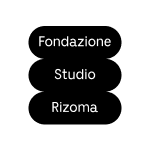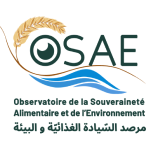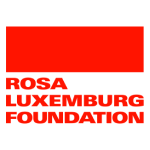School of Water Scarcity is a multi-disciplinary research project examining water management and farming practices while connecting them to a broader cultural discourse. The project is a collaboration between OSAE – L’Observatoire de la Souveraineté Alimentaire et de l’Environnement in Tunis, Associazione Aterraterra in Palermo, Collettivo Epidemia in Italy, and a wider network.
In an ongoing process, specific focus is given to facilitating the dissemination of knowledge held by small farmers from both countries, the preservation of biodiversity through the cultivation of local native and non-native varieties and the possibility of creating solutions for the use and conservation of water reserves. What is possible despite and, maybe, even because of disaster? As Jonathan Nossiter reiterated once, civilisation is based on agriculture and culture. In a quest to create a positive and non-violent exchange to look forward to, the School of Water Scarcity brings together workers of both culture and agriculture to exchange and connect while also creating alliances to communicate the fundamental importance of their work to a broader public.
I – Mapping Possibilities
In the context of global warming, desertification and also a certain tropicalisation in which weather conditions are increasingly severe – for example the rainfall of an entire year which falls during a few days, heat waves, fires, and at the same time, weather predictions that are less and less reliable – it is necessary to think about how and what to do to contribute to the limitation of Climate Change (changing policies and economic model) and secure local food security through the use of local knowledge. Which lost traditions can be reactivated and shared among farmers, such as soil practice (capable of absorbing water in excess and keeping it for longer use), stone-wall building techniques (capable of creating humidity), channel coils along slopes (to avoid soil erosion and waterlogging)? Which plants can resist, and would a tropicalisation of the cultivated plants pose a problem? When does protectionism become conservative? And how can the water collection and storage be relearned?
II – Agriculture and Resistance
Taking care of the land is an act of resistance and care. On the one hand, agricultural production provides essential nutrition and is thus necessary to survive. The quality and diversity of the products we have at hand drastically change from small-scale farming to industrial production. On the other hand, this is true for human organisms as it is for the environment, as industrial agriculture completely depletes the soil, natural local resources and biodiversity. However, in Sicily and many regions and countries, small-scale farming is not lucrative enough for farmers to survive – the work they invest in is more significant than the return received – and leads to the land being abandoned. When droughts, flooding and fire are the new norms, this is even more problematic because unworked soil and empty fields are much less resilient in such conditions than cultivated land. Nonetheless, in a merely neocolonial and capitalist realm, these territories have little value and resources are geared towards profit. How could a solidarity network be put into place for who cures them, and how could these territories generate livelihoods again?
III – Culture and Communication Agricultural produce is more than anything treated like an economic commodity; it is grown artificially, moved around, conserved over long periods, and finally transformed into countless other products or, in the worst case, if unconsumed, it ends up in our landfills. The treatment of nature and workers in industrial agriculture as a limitless production line is disastrous. Yet, as we need to eat multiple times every day, productive small-scale farming could be one of the most incredible change-makers for consumers’ health and the environment. What ways of communication can be created that raise awareness, give the possibility for connection, and are accessible rather than greenwash elitist? Which dialogues between direct action, structural change, and administrative support or pressure are necessary? Which forms of expression are tangible?
This project was conceived by Fondazione Studio Rizoma and funded by the Rosa-Luxemburg Foundation Tunis.




